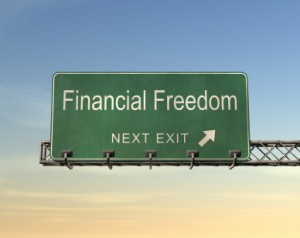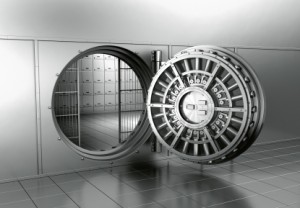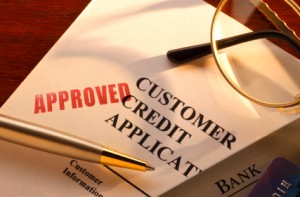Archive for April, 2010
Friday, April 30th, 2010
 Q: Q:
If I have filed a dispute with Equifax, do I need to file one with Transunion and Experian?
Nick..
A:
Hi Nick,
I am going to assume that what ever you are disputing on your credit report is also reporting to the other two credit bureaus. If this particular issues is, then yes you need to dispute to the other two bureaus as well. You can do this through our on-line credit report dispute links to Experian and TransUnion.
Mike Clover
CreditScorequick.com
Posted in Uncategorized | Comments Off
Tuesday, April 27th, 2010
 You know your credit score matters – it’s the yardstick by which you are evaluated and judged by lenders, landlords, employers, and even would-be spouses. You know your credit score matters – it’s the yardstick by which you are evaluated and judged by lenders, landlords, employers, and even would-be spouses.
The FICO credit score assigns each consumer a score from 300 to 850. And while they don’t reveal the mathematical formula used to assign that score, it’s common knowledge that your use of credit determines your score.
Consumers wanting to improve their credit scores have long wondered how much different activities would raise or lower their scores. And no one will say, perhaps because the answer is: “It depends.”
The truth is, the impact that an activity will have on your credit score depends upon which scorecard you are on.
FICO scoring uses 12 different scorecards that categorize consumers into groups of their financial peers. If you’ve had a bankruptcy you’re on one scorecard, while you’ll be on a different scorecard if you’ve had late payments but no bankruptcies. If you have a clean credit record but little credit use, you’ll be on a different scorecard from a consumer with clean credit and extensive use.
The number of points assigned to a given activity varies depending upon the scorecard you’re on. A credit application will “cost” a young person with little credit history a different number of points than it will cost a consumer who has been using credit for 30 years.
While this alone seems ridiculous, it gets worse. Your score is partially determined by comparison to others on your scorecard. So here’s what happens:
Say you’ve had a bankruptcy. You’ll be on a scorecard with others who have had a bankruptcy. Say also that you’ve worked hard to build and maintain a good credit record ever since. Your score might be at the top limit allowed for people on your score card. Then you reach the magic 10 year mark and the bankruptcy comes off your credit report.
It seems like that would be a good thing – that it would raise your score. But instead it could lower it, because you’ll automatically be moved to a score card with people who have not had bankruptcies – and you might not compare as favorably. You move from the top of one group to the bottom of another – and your credit score goes down.
The good news is that by maintaining good financial habits you can eventually rise to the top of the next scorecard.
In the meantime, do keep track of your credit scores on a regular basis. Get your free credit report with scores today and see where you stand. Then keep working toward a score of at least 760 – which will get you the best rates next time you need credit.
Author: Marte Cliff
CreditScoreQuick.com
Posted in Uncategorized | Comments Off
Monday, April 26th, 2010
 Are falling credit scores, the high rate of foreclosures, and personal bankruptcies the result of Americans feeling so insecure about themselves that they overspend in an effort to “keep up with the Joneses?” Are falling credit scores, the high rate of foreclosures, and personal bankruptcies the result of Americans feeling so insecure about themselves that they overspend in an effort to “keep up with the Joneses?”
Some financial gurus say yes. Along with envy, a belief in entitlement, and a need to spend in order to “feel better about oneself,” trying to keep up with the Joneses has led far too many Americans into crushing debt.
Think how many times you’ve heard statements such “I really can’t be seen in last year’s swimsuit!” or “I work hard, so I deserve this.”
Of course many don’t say those things out loud, they just feel that somehow they “should” be able to install a swimming pool, drive a new SUV, or buy a 52” flat screen plasma TV because their neighbors or their friends have them. If they didn’t do the same, those friends and neighbors might look down on them. Can’t have that.
So, armed with little pieces of plastic called credit cards, Americans marched off to the vendors and came home with the goodies – at a price that became impossible to pay when credit card issuers suddenly raised their interest rates and reduced credit lines.
So now what? With their credit scores in the basement and their credit lines gone, those consumers don’t have the means to continue buying all the “stuff” they didn’t need in the first place.
The possible up side of this crisis…
Change is often hard. But perhaps this change can turn out to be a good thing in the long run. Perhaps children growing up in this different atmosphere will learn to be happy without a steady flow of new toys and distractions. Perhaps adults will learn to enjoy what they have instead of trying to find fulfillment through spending.
This credit crisis may even be good for the earth. When people don’t have credit card lines to spend on trinkets that are quickly tossed aside, perhaps our landfills will cease to be overburdened with cast-offs.
My prediction: Those who can take this in stride and quit judging their own worth by their ability to engage in conspicuous consumption will be the winners in the next few years.
They’ll cut back on unnecessary spending and find ways to save even on necessary spending. They’ll get those credit card bills paid and rebuild their credit scores – and will have learned enough not to use their credit to excess in the future. And, hopefully, they’ll teach their children by example, so the next generation won’t get into the same mess.
Who knows, maybe people will begin taking pride in thrift.
Author: Mike Clover
CreditScoreQuick.com
Posted in Uncategorized | Comments Off
Saturday, April 24th, 2010
 On March 26 the government announced yet another program designed to help homeowners keep their homes. The new program, named the Temporary Assistance for Unemployed Borrowers program, will go into effect until later this year and many of the details are yet to be worked out. On March 26 the government announced yet another program designed to help homeowners keep their homes. The new program, named the Temporary Assistance for Unemployed Borrowers program, will go into effect until later this year and many of the details are yet to be worked out.
Will it be more helpful than the Making Home Affordable Modification Program? It’s too early to tell, but one hopeful word in the early reports is “requires.” However, it may only be available to those whose loan servicers are already HAMP participants.
This new program isn’t for everyone. In order to qualify, the homeowner must first request assistance while the loan is still current, or within the first 90 days of delinquency. Then he or she must prove receipt of unemployment benefits. That eliminates the self-employed and those whose unemployment benefits have run out.
The program will require lenders to offer three to six months’ of lower mortgage payments – not over 31% of current income – in the form of forbearance. Forbearance means that the unpaid amount is not forgiven, but deferred. So the program will not reduce the debt load.
Using the program will appear as a negative on the borrower’s credit report, but of course, delinquency is also a negative. Either way, the borrower’s credit scores will take a hit.
Why 3 to 6 months? Perhaps as a result of reports from the U.S. Bureau of Labor Statistics, which says the median length of unemployment is approximately four and a half months. This figure may come as a shock to those who have been seeking employment for a year or more.
They also report that the unemployment rate stands at 9.7%, but as we all know, the true figure may be as high as 22%. Statistics only count those receiving unemployment and actively seeking work.
What if there’s still no work after 6 months, or if new employment pays far less? In that case, participants will be considered for a loan modification through the HAMP program.
Due to another change in regulations, HAMP program loan servicers will be required to consider an approach that includes a write-down of some principal for loans that are more than 115% of the current value of the property.
But as with all these programs, the test for eligibility will be what benefits the lender most – not what benefits the homeowner. If loan modification is more beneficial to the lender than foreclosure, the homeowner will stand a good chance. If not, modification will be refused.
Author: Marte Cliff
CreditScoreQuick.com your resource for credit cards, credit reports, loans and credit news.
Posted in Uncategorized | Comments Off
Friday, April 23rd, 2010
 Consumers with low credit scores and limited down payment funds have long relied on FHA loans as the path to home ownership. But under FHA guidelines, they are limited in their choice of homes. Consumers with low credit scores and limited down payment funds have long relied on FHA loans as the path to home ownership. But under FHA guidelines, they are limited in their choice of homes.
For one thing, the home must meet certain standards. FHA contends that home buyers with lower credit scores and little cash for a down payment don’t have the financial means to make home repairs soon after purchase. But for the last 7 years there’s been an additional restriction.
In 2003 the Federal Housing Administration imposed an “anti-flipping” rule designed to reduce mortgage fraud. Under this rule, a FHA buyer could not purchase a home that had been owned by the seller for less than 90 days. In many cases, home buyers didn’t become aware of the rule until they attempted to purchase such houses and learned that they couldn’t use a FHA loan.
Now, in an effort to make more affordable homes available to these consumers, FHA has instituted a 12-month waiver to the rule.
Investors who buy foreclosure homes at auction generally need to spend some money on repairs before those homes can be offered for sale – especially if they’ll be offered to FHA buyers.
Thus, one of the provisions of the waiver could be a tripping point in the effectiveness of the waiver. FHA says that if a buyer agrees to pay more than 20% above the price the investor paid, the loan will come under more scrutiny. Some banks are just saying “no” to lending on such purchases.
So depending upon the price of the home plus the extent and cost of repairs, many homes could still be excluded. Waiting the 90 days isn’t a viable option, because the period begins when the sale to the investor is recorded and ends when the purchase contract with the new buyer is signed. Few investors will be willing to “hold” a home for a buyer who hasn’t signed a purchase contract.
Earlier Federal programs promised to help distressed homeowners through mortgage loan modification, refinance, and short sales – but fell short of success because banks were not willing to cooperate. This program, like the others, will only be as beneficial if the banks cooperate.
The best course of action for any future homeowner is to become qualified for a conventional loan by raising his or her credit scores, and to begin gathering funds for a down payment. The first step is to order a free online credit report with scores and see where you stand. Then follow the suggestions given on the free credit report and begin the climb to restriction-free home buying.
Author: Mike Clover
CreditScoreQuick.com
Posted in Uncategorized | Comments Off
Thursday, April 22nd, 2010
 Q: Q:
I would like to know that if missing one months payment but than making a double payment the following month will cause my credit score to go down.
Brenda
A:
Hi Brenda,
this is a common question and a common mistake. Typically when you make a payment 30 days late the creditor will report that late payment on your credit report as a -30 day late payment. Late payments will drop your credit score 100 points or more. The creditor will also charge a late fee as well and ruin your credit for being late. Doubling up on your payment will not stop the hit to your credit score for the -30 day late payment.
Mike Clover
CreditScoreQuick.com
Posted in Uncategorized | Comments Off
Wednesday, April 21st, 2010
 In December 2009, consumers fed up with high credit card interest rates and the seemingly anti-customer practices of “too-big-to-fail” banks launched the “Move Your Money” movement. And it seems to be taking hold. In December 2009, consumers fed up with high credit card interest rates and the seemingly anti-customer practices of “too-big-to-fail” banks launched the “Move Your Money” movement. And it seems to be taking hold.
However, the shift began even before this launch. Membership at credit unions grew by 2% in 2009. As of February 55% of community banks and credit unions reported that they had seen an increase in new deposit accounts.
Credit card interest rates are one reason for the switch. A study last summer showed that credit card interest rates at the 12 largest credit unions averaged 3-4% less than interest rates at the 12 largest banks. And, unlike banks, Federal Credit Unions must adhere to an 18% cap on interest rates – whether for credit cards or consumer loans. As we’ve seen, the big banks have no cap on the interest rates they can and will charge.
But there’s more. Small banks and credit unions also tend to pay more interest on deposits and often run specials to attract new depositors. And since credit unions are member-owned nonprofit organizations, they also pass surplus profits back to their customers in the form of dividends and low fees.
Another advantage to moving to a small bank or credit union is personal service. These institutions pride themselves on getting to know their customers. So if you appreciate being greeted by name when you enter your bank, moving your money might please you.
The move isn’t for everyone…
If you rely on the services that only a large national bank can offer, you may be frustrated by banking with a smaller institution.
For one thing, you could find yourself having to use another bank’s ATM when you want to withdraw money. Fees for that service run from $1 to $3 for every withdrawal. However, most of these smaller institutions do belong to an ATM network that provides fee-free access at over 25,000 locations nationwide. You just have to keep track of which banks belong to this Co-Op Network.
Customer service, while friendlier, probably won’t be available 24 hours. In fact, if you need to contact customer service, you may be limited to calling between 9 and 5, Monday through Friday.
Not all small banks and credit unions offer full service online. Some do, some don’t, and some charge for the service. So if you enjoy online bill paying and mobile banking, check for availability before you make the switch.
As with any financial decision – get all the details before you act. Along with fees and practices, be sure to check the details associated with the credit cards they offer.
CreditScoreQuick.com
Posted in Uncategorized | Comments Off
Monday, April 19th, 2010
 Q: Q:
I’m confused about the 7 year guideline. Does that mean any item that is on my credit report and is more than 7 years old have to be removed or do I have to dispute the item and hope that it is removed. For example, a credit card with a balance that has been in default since 1999.
Thank you,
Jeffrey
A:
Hi Jeffrey,
Typically most collections are only suppose to be on your credit report for 7 years from Collection date. Unfortunately they don’t always get removed properly. There are some collections that stay on your credit report longer than 7 years. Here is how long certain collections stay on your credit report. Collection Expiration periods.If you find your collections on your credit report has expired, you can use our on-line credit dispute link to dispute them and get them removed from all 3 credit bureaus.
CreditScoreQuick.com
Posted in Uncategorized | Comments Off
Monday, April 19th, 2010
 For today’s students, leaving school with good grades and a degree isn’t good enough. For today’s students, leaving school with good grades and a degree isn’t good enough.
In addition to your scholastic achievements, you need good credit scores if you want to land a good job and find somewhere to live.
As laid-off workers across the country have learned over the past months, employers are using credit scores as a way to thin the growing lists of applicants hoping to fill a dwindling list of job offerings. In most cases, your credit rating isn’t relevant to the job, but if it’s poor, many potential employers will still use it to knock you out of the running for employment.
In addition, rental managers now use credit scores to evaluate tenant applicants – and turn down individuals whose credit reports don’t measure up to their standards.
If you’re in this predicament, you aren’t alone. Thousands of students share your pain.
In some cases, poor credit scores came from confident over-spending in anticipation of high future income. That confidence is probably why so many students were caught in the credit card meltdown.
You remember it – it was when credit card issuers suddenly decided to hike interest rates and slash credit lines without giving warning. It was when consumers who owed $2,000 on a $5,000 credit line suddenly learned that their credit line was now $1,500 and they were over limit.
Even if that didn’t happen, the increased interest often raised minimum monthly payments to levels that were hard to maintain – especially for students who were working part-time. And of course, using nearly 100% of a credit line lowers scores.
If you’re a student with low credit scores, begin taking action right away. Building good credit scores when you aren’t able to hold down a full-time job can take a while.
The first step is to know your credit scores. Order your free online credit report with scores and see how you stand. Your report will include the reasons why your score is less than it could be – even if it’s already good. Armed with that information, you can begin to build your credit.
Since 70% of all credit reports have errors, be sure to read the report carefully and take steps to correct any that you find.
One more thing: If you’ve gotten in over your head and can’t make minimum monthly payments, see a credit counselor for help in negotiating lower payments.
Stay away from credit repair services. They can’t do anything you can’t do, but they will get you further in debt.
Author: Mike Clover
CreditScoreQuick.com
Posted in Uncategorized | Comments Off
Thursday, April 15th, 2010
 Credit cards have become almost necessary to our way of life now. They’re essential for everything from purchasing gasoline when the station is closed, to shopping on line, to paying for an emergency trip to the dentist. Credit cards have become almost necessary to our way of life now. They’re essential for everything from purchasing gasoline when the station is closed, to shopping on line, to paying for an emergency trip to the dentist.
But if you’ve gotten into financial difficulties that sent your credit scores to the basement, you may think your only choices are a pre-paid card or a secured credit card.
Not so. Several companies offer “Bad credit credit cards.”
When these were first introduced, many referred to them as “fee harvester” cards, because the fees associated with getting and using them could amount to as much as 75% of the credit line issued. There were fees for making application, fees for activation, annual fees, monthly fees, fees for every transaction, and more.
But the CARD Act took care of that. Under the new regulations, card issuers can charge only up to 25% of the credit line in fees during the first year.
In addition, card issuers began to see the opportunity in serving the thousands of Americans whose credit scores have fallen victim to the economic crisis. As a result, the forces of competition took over.
Now consumers can choose from an array of credit cards for bad credit, many of which offer rates and terms that are similar to cards for consumers with better credit scores. Before choosing one of these credit cards, do the research and find the card with the least cost to you. There can be wide differences.
For instance, Orchard Bank offers a card with a zero percent introductory rate, changing to 14.9% after about 6 months. The annual fee is $39. Credit One Visa® offers a card with 23.9% interest, an enrollment fee of $69, and a $69 annual fee. **
Both of these cards carry the standard fees for balance transfers and ATM withdrawals, and penalty fees for late or over limit charges.
The credit line you’ll be offered will depend upon just how low those scores are. In some cases, the credit line offered could be as low as $200.
But if your goal is to rebuild your credit, it could be worth your effort and expense to carry the card. By charging less than $60 on a $200 limit credit card, then paying off the balance before you use it again, you will begin to see your credit scores inching upward.
** Rates as found stated on line as of April 2010
Author:Mike Clover
CreditScoreQuick.com

Posted in Uncategorized | Comments Off
Disclaimer: This information has been compiled and provided by CreditScoreQuick.com as an informational service to the public. While our goal is to provide information that will help consumers to manage their credit and debt, this information should not be considered legal advice. Such advice must be specific to the various circumstances of each person's situation, and the general information provided on these pages should not be used as a substitute for the advice of competent legal counsel.

|
 Q:
Q:


 You know your
You know your  Are falling credit scores, the high rate of foreclosures, and personal bankruptcies the result of Americans feeling so insecure about themselves that they overspend in an effort to “keep up with the Joneses?”
Are falling credit scores, the high rate of foreclosures, and personal bankruptcies the result of Americans feeling so insecure about themselves that they overspend in an effort to “keep up with the Joneses?” On March 26 the government announced yet another program designed to help homeowners keep their homes. The new program, named the Temporary Assistance for Unemployed Borrowers program, will go into effect until later this year and many of the details are yet to be worked out.
On March 26 the government announced yet another program designed to help homeowners keep their homes. The new program, named the Temporary Assistance for Unemployed Borrowers program, will go into effect until later this year and many of the details are yet to be worked out. Consumers with low credit scores and limited down payment funds have long relied on FHA loans as the path to home ownership. But under FHA guidelines, they are limited in their choice of homes.
Consumers with low credit scores and limited down payment funds have long relied on FHA loans as the path to home ownership. But under FHA guidelines, they are limited in their choice of homes. Q:
Q: In December 2009, consumers fed up with high
In December 2009, consumers fed up with high  Q:
Q: For today’s students, leaving school with good grades and a degree isn’t good enough.
For today’s students, leaving school with good grades and a degree isn’t good enough. Credit cards have become almost necessary to our way of life now. They’re essential for everything from purchasing gasoline when the station is closed, to shopping on line, to paying for an emergency trip to the dentist.
Credit cards have become almost necessary to our way of life now. They’re essential for everything from purchasing gasoline when the station is closed, to shopping on line, to paying for an emergency trip to the dentist.
